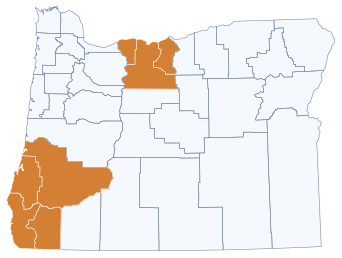CLCM will work with individuals and families to determine eligibility for Intellectual or Developmental Disability services by using the criteria below:
Developmental Disability
Developmental Disability means a neurological condition that is a severe mental or physical impairment or combination of mental and physical impairments that:
- Begins before an individual is 22 years of age or 18 years of age for an intellectual disability;
- Begins in and directly affects the brain and has continued, or is expected to continue, indefinitely;
- Causes significant impairment of daily living skills (adaptive behavior) such as, but not limited to, communicating, grooming, dressing, safety, and social skills
Developmental Disabilities are not primarily attributed to other conditions including, but not limited to, a mental or emotional disorder, sensory impairment, motor impairment, substance abuse, personality disorder, learning disability, or Attention Deficit Hyperactivity Disorder (ADHD); and
Other developmental disabilities include autism, cerebral palsy, epilepsy, or other neurological disabling conditions.
Intellectual Disability
Intellectual Disability (ID) means significantly sub average general intellectual functioning defined as full scale intelligence quotients (Full Scale Intellectual Quotient, IQs) of 70 and under, as measured by a qualified professional, (a licensed clinical or school psychologist) and existing concurrently with significant impairment in adaptive behavior directly related to an intellectual disability such as:
- A lack of daily living skills (adaptive behavior) such as, but not limited to, communicating, grooming, dressing, safety, and social skills, that show up prior to 18 years of age
- Individuals with IQs of 71-75 may be considered to have an intellectual disability if there is also significant impairment in adaptive behavior as diagnosed by a licensed clinical or school psychologist.



